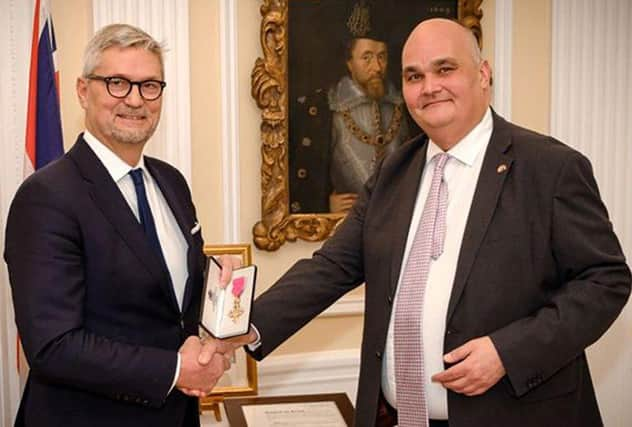The Scottish Government quango colonialism must be challenged


This tweet reflected the parallel of appointments to the board of Caledonian MacBrayne’s parent company, David MacBrayne Ltd. The surprising point was that it came from the MP for the Western Isles, Angus Brendan MacNeil.
Even he could see the hypocrisy of the Scottish Government not appointing islanders to the board of a publicly owned company so relevant to the communities in which they live.
Advertisement
Hide AdAdvertisement
Hide AdYet the internal Scottish colonialism which Mr MacNeil acknowledged is now standard fare from Edinburgh. This has gone far beyond the occasional exception. It is an unmistakable policy pursued by people who simply do not care about protests from the outer fringes.
There are no islanders on the CalMac Board. None on the CMAL board. No Highlanders or Islanders on the HIAL Board. And now no Western Isles residents among four recent appointments to the Western Isles Health Board.
As Uisdean Robertson said, there is a high level of impertinence on the part of individuals who seek these appointments. Why does a woman living in Hastings want to be on the Western Isles Health Board?
Why should an individual who has, as far as we are aware, no other connection with the islands think himself qualified to be on both the MacBrayne and Western Isles Health Boards, the one used as a stepping stone to the other?
Advertisement
Hide AdAdvertisement
Hide AdAppointing people from the communities most directly affected by Scottish quangos is deeply distrusted by the civil servants who, in effect, make the decisions, in the absence of Ministers who care enough to intervene.
The more divorced quangoteers are from communities, the less trouble they are likely to cause. They know where their loyalties lie. The virtue that prevails is the guarantee of silence. On that basis, multiple quango appointments follow.
The appointment of Erik Østergaard, chairman of CMAL to switch to CalMac, is highly political and cannot have happened without Ministerial buy-in. It is part of the Scottish Government’s defence over the grotesque debacle at the Ferguson yard which has contributed so much to the woes of the CalMac fleet.
By giving such an ostentatious vote of confidence to CMAL through the appointment of Østergaard, Ministers are effectively adjudicating to protect their own backs. They may also be acting in advance of the Ernst and Young report if it recommends that the unholy trinity of Transport Scotland, CMAL and CalMac should be scrapped.
Advertisement
Hide AdAdvertisement
Hide AdWhile the three non-executive appointments to the MacBrayne board are less high profile, they are symptomatic of how the system works. The civil servants who determined these appointments will not be unaware of the pressure to appoint islanders. They just hold it in contempt and know that weak Ministers will not interfere.
Uisdean Robertson has heard from island residents of high standing who applied but did not get an interview. That is par for the course. Instead, we end up with three “insiders” with other quango appointments unrelated to either islands or maritime affairs. It is an act of defiance by the civil servants, abetted by a system which puts so much power in their hands.
The technique deployed is to divide applicants into “appointable” and “unappointable” before the list goes to Ministers. Anyone they don’t want is got rid of at this stage and so the process rolls on and will continue to do so until the rules are changed. The only way to change it is by making place of residence an essential qualification for at least some of the positions on every quango.
HIAL is an equally extreme example – quite incredible that none of the Scottish Government appointees lives in the vast geographical area covered by the quango, or has first-hand knowledge of it. Yet these are the people who have rubber-stamped a vastly expensive centralisation project which caused huge anxiety in island communities.
Advertisement
Hide AdAdvertisement
Hide AdWithout any sense of irony, the chair of HIAL – a classic puppet of the quango system - says in its annual report that a “positive” of the pandemic has been “the increased interaction through digital meetings”. In other words, there is even less reason than before to go near the places and people affected. Ditto now even the Western Isles Health Board!
This now has to be treated as a single, ongoing political issue rather than a random series of affronts which can be brushed aside, as Nicola Sturgeon brushed aside the CalMac appointments. The battle against internal Scottish colonialism is one worth fighting.